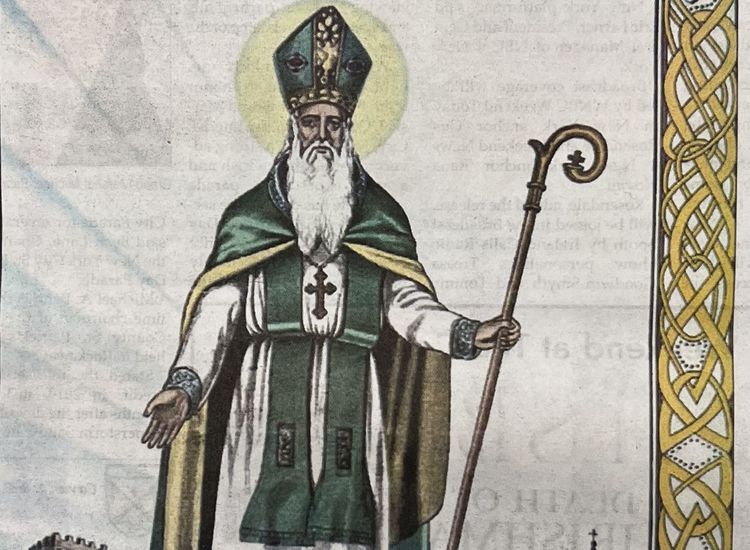Published in the Irish Echo on March 20, 2013
By Orla O'Sullivan
Had her parents not sent her to Paris as a reward for her decision to become a nun, deferred for a year, Ireland would not have had in Mary Robinson as its first female president, nor the United Nations a formidable High Commissioner for Human Rights.
"Paris," Mrs. Robinson, with a laugh, "of course, that changed everything," she said as she spoke in New York's Cooper Union about the path her life took after she abandoned plans to join the clergy.
The historic New York venue was Robinson's fourth and final stop in a U.S. tour to promote her memoir, "Everybody Matters; My Life Giving Voice."
Mrs. Robinson received a standing ovation from the crowd of about 300 people who came out in a downpour.
Still, there were substantially fewer present in New York than the "huge audiences" she had received in Philadelphia, Boston and St. Louis in the past fortnight, according to her husband, Nick Robinson.
Mrs. Robinson, now 68, spoke for about an hour, barely glancing at notes. Without reading from her memoir, she fluidly traced the line from lawyer to senator to Irish president, and on to the world stage - shining a spotlight on everything from famine to genocide and, most recently, what she terms "climate justice."
Robinson's discussion encompassed everything from the deadly serious, such as the "travesty" in Syria, to humorous reminiscences. Among the latter was that she and some of her brothers rented an apartment, as students, in the house where Oscar Wilde was born.
"It was renamed during our time as 'Wilde House' but that had more to do with my brothers," said the woman who admitted to being the type who "sat at the front of class."
Today, Robinson heads the Mary Robinson Foundation-Climate Justice. The foundation, which focuses on how the world's poorest are hit hardest by environmental degradation, was established in 2011.
Mrs. Robinson also remains active in world politics, as a member of the Elders, an independent group formed by Nelson Mandela.
A recipient of multiple awards, including one from President Obama, Mrs. Robinson spoke from the spot where Abraham Lincoln made a speech that helped paved his path to the presidency: the Great Hall of Cooper Union.
Jamshed Bharucha, president of the free university in Manhattan, noted, in introducing her, that other agents of change hosted over the centuries in Cooper Union included Michael Collins and Fenian rebels before him.
The changes for which Mrs. Robinson advocated from an early age put her outside mainstream Irish society. She jokingly referred to the "modest proposals" she put before the Irish Law Society, as the first female undergraduate to address it: access to contraception, and the decriminalization of homosexuality and suicide.
A few years later, a senator at age 25 and the wife of Nick, with whom she studied law in Trinity College, Mrs. Robinson found herself "denounced from pulpits" and "feeling wobbly walking down Grafton St... I was used to being well regarded."
She was the recipient of so much hate mail, Mr. Robinson burnt it, "something," she said, "we both very much now regret because it was a great record of social history."
The odds from bookmakers were "a hundred to one against" her when she reluctantly accepted the Labor Party's invitation to run as its presidential candidate - drawn, she said, by the possibilities to influence constitutional law, thereby making more of a previously merely ceremonial role.
She famously thanked "mná na hÉireann" (women of Ireland) for their support In her 1990 acceptance speech. "So many wives didn't tell their husbands or daughters their fathers that they'd voted for me," she said.
One such woman came to shake Mrs. Robinson's hand, years ago in Boise. "You were my number one," she said, "when I told my father he nearly killed me!"
Another term Mrs. Robinson brought to common use was "the diaspora." Standing before some of that diaspora just ahead of St. Patrick's Day, she said, "Now, it's got to the stage of having Irish people come home for a 'Gathering.'"
Asked afterwards if she thought The Gathering 2013, an initiative to attract visitors to Ireland this year had cheapened her intended emphasis on Ireland's often forgotten emigrants, Mrs. Robinson said no.
"I know there's a lot of criticism of The Gathering, but I think it's an Irish thing to look to friends and neighbors to help when times are bad."
Among the diaspora represented in Cooper Union was Anne Heavey, a retired nurse from Athlone, who, despite ill health, braved the elements to see Ireland's former president.
"You'd be proud of Mary," she said.









